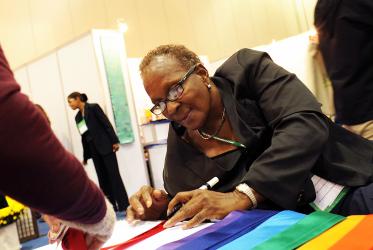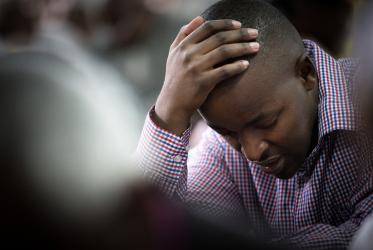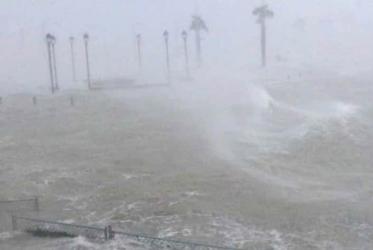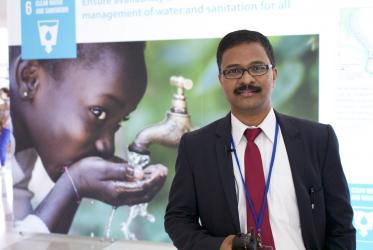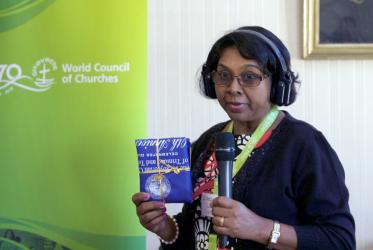Displaying 1 - 17 of 17
28 March 2024
Rethinking Ecological Relationships in the Anthropocene era
11 - 13 February 2021
Churches should use their voice on climate change
26 February 2020
WCC well-represented in Religions for Peace leadership
07 October 2019
Is God present - even amid hurricane’s wrath?
07 September 2019
Trinidad and Tobago church challenges plastic pollution
09 October 2018
Diakonia: “a tool to reach abundance of life”
24 July 2018
Seven weeks of Lent highlight water justice in Latin America
12 February 2018
G7 must address famine
22 May 2017

